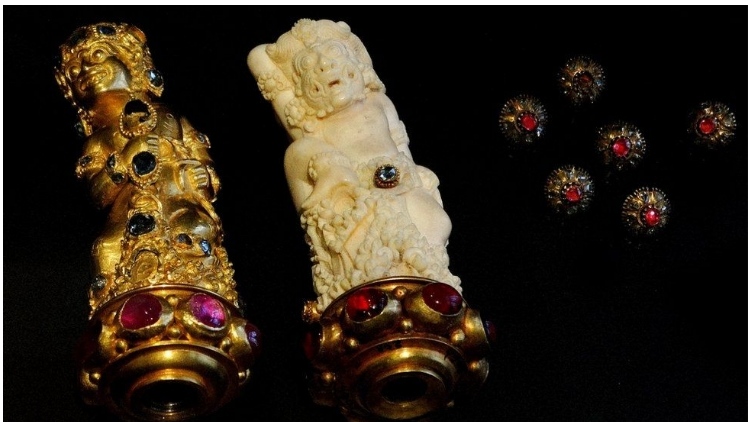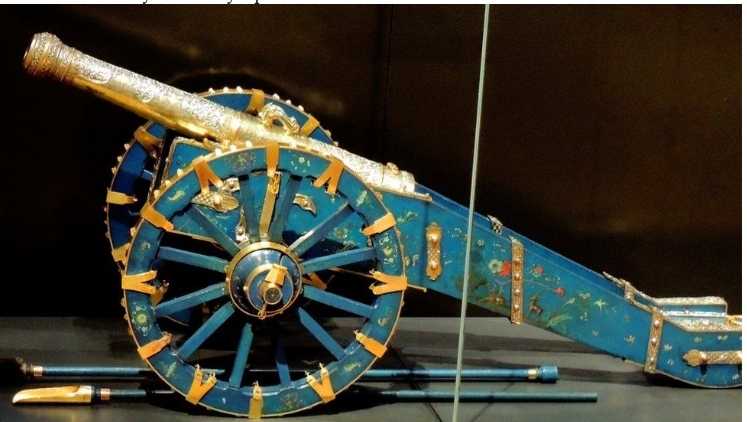Netherlands to return treasures to Indonesia and Sri Lanka
By Mattea Bubalo

The “Lombok Treasure”, looted by Dutch soldiers in 1894 is being returned to Indonesia
The Netherlands is set to hand back hundreds of precious artefacts taken from Indonesia and Sri Lanka during its colonial period.
Objects to be returned include a gem-encrusted bronze cannon and a looted cache of jewels from the “Lombok treasure”. A report had urged the government to return items if countries request them.
The agreed restitution comes as the Netherlands increasingly confronts its colonial past.
Other countries have also began returning precious looted artefacts in recent years. Notable examples include British and German museums signing over some of the so-called Benin Bronzes stolen from Nigeria during a large-scale 1897 British military expedition.
“[This is] the first time that we are returning objects that should never have been in the Netherlands,” Culture Minister Gunay Uslu said.
“But we are not just returning objects. We are actually starting a period in which we are more intensively cooperating with Indonesia and Sri Lanka.”
Among the collections to be handed back to Indonesia is the so called “Lombok treasure” – a trove of jewels, precious stones, gold and silver which was looted by the Dutch colonial army from a royal palace on Indonesia’s Lombok island in 1894.

A bronze cannon, thought to be exchanged as a gift between Sri Lankan aristocracy, will also be returned
Sri Lanka will take back a lavishly decorated 18th Century bronze cannon, currently on display at Amsterdam’s Rijksmuseum, thought to have been a gift from a Sri Lankan aristocrat to the King of Kandy in the 1740s.
The cannon is believed to have fallen into Dutch hands in 1765, when Dutch troops attacked and conquered the Sri Lankan kingdom of Kandy.
Culture Minister Uslu said the government was acting on recommendations laid out in a 2020 report by a Dutch committee investigating art taken during the colonial era.
The committee urged the government to be “willing to return unconditionally” any cultural objects looted in former Dutch colonies if requested by the source country.
“The Netherlands must assume responsibility for its colonial past by making the recognition and redress of this injustice a key principle of the policy on colonial collections,” the report said.
The country has been wrestling with its legacy more openly in recent years.
On Saturday, King Willem-Alexander formally apologised for the Netherlands’ role in the slave trade, saying he felt “personally and intensely” affected.
The country became a major colonial power after the 17th Century, holding territories across the globe, and Dutch slave traders trafficked more than 600,000 people.
BBC News



